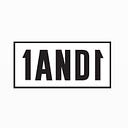Life comes at us fast, and another thing that comes fast is debt. Whether you’re living with a roommate, under a single household, or providing for yourself and others, it takes financial stability to keep the lights on. Now more than ever, as many are departing from jobs, is it important to manage your money to make sure you’re able to stay on your feet and have some cushion when you might fall. Let’s take a look at some personal banking tips for the Great Resignation.
What Is the Great Resignation?
The Great Resignation has become a popular term that describes the higher-than-normal rate of American workers leaving their jobs. This began in Spring 2021 in the midst of the pandemic as many people were let go of their jobs or left due to the grueling mental strain COVID-19 caused. Many are finding a sense of freedom after leaving their jobs, but that doesn’t include financial freedom. There’s still stress, though maybe of a different kind, as their need to make money to support not only themselves but others, hasn’t changed.
Not only did the pandemic cause people to lose their jobs, but it also took a major hit on many’s personal finances, leading to long-term recovery for millions of people. As people work to get back on their feet, they are also working to find out how to save money and be proactive in budgeting. Saving cash can seem extremely daunting, but there are some simple ways to get started that don’t feel too scary.
Invest in a Budget App
We’re constantly on our phones, from texting and talking to being on socials and answering emails. A great way to utilize your phone and screen time is to download apps that focus on personal banking, money tips, and money-saving. That way, you can always have insight and direct access to your finances. Various apps such as Mint, Digit, Acorns, and more provide you with tools for how to manage your money. These are helpful apps because they give you a clear picture of the money coming in and going out, and how you can cut back to save more. Don’t fret — there is a variety to choose from that is free as well.
Ask Questions When Opening Your Bank Account
If you don’t know much about banking, it’s easy to choose the wrong type of bank account. Whether you already have a personal banking account or are looking to open one, take time to do some research or ask someone who is knowledgeable to help you choose the best option for yourself. A good way to pick the best fit for you is to compare bank accounts by checking features and saving benefits, as well as any stipulations they come with.
Negotiate
There are a lot of numbers and language that come along with banking and finances. It’s easy to gloss over them or say yes to something you might not fully understand. Knowing the fees is something that’s extremely important to do as there are fees involved in any account that you choose to open.
Look for sign-up fees as well as what fees might be associated with the maintenance of your account. Choosing an account with few or no fees, if possible, is your best bet to ensure that you save money. If you’re unsure about the fees, take a moment to ask your bank, and/or credit union, to share more details with you. They might even help get you to a fee that’s right for you.
Understand Your Features
When you’re busy with jobs and many other things requiring your attention throughout the day, it can be difficult to make sure your bills are paid on time or to put away savings. What’s great about some banks is that, when you do direct deposit, you can automatically put a percentage in your savings. This way, all the work is done for you and it’s a guarantee that you’re prioritizing putting money in your savings or for a rainy day.
Look into auto-pay as well. It will take away the stress of keeping track of all your payments and is great for your credit, as you’ll have a high rate of on-time payments.
Be Consistent in Checking Your Account
Set a reminder to check your bank account to keep an eye on the health of it. It’s important to have a general understanding of how much money you have. The more you know what your spending habits are, the more you have control over budgeting.
Try the Envelope System
Another great way of budgeting your money and doing some of your own financial reporting is to try the envelope system. This is an easy and effective way to track your spending and help you categorize your budget. Take time to create categories such as groceries, gas, personal, and entertainment, or others that you find yourself spending money on.
Allot a certain dollar amount to each category and place that cash in an envelope. Once you have run out of money in one of the envelopes, it means you have no money left for that category and you can’t spend anymore. This is a great way to practice discipline and shows you how much money you truly need, preventing you from splurging.
Ask as Many Questions as You Need
The journey toward financial freedom might be scary, but it doesn’t have to be. Don’t be afraid to ask questions or for help when you need it. This can range from requesting more information from your bank to asking someone you trust to help you build a solid foundation for yourself. In the meantime, try out some of the tips mentioned above and share them with others who are also working to be more financially healthy.
*This post may contain affiliate links to the products and services that we talk about.
